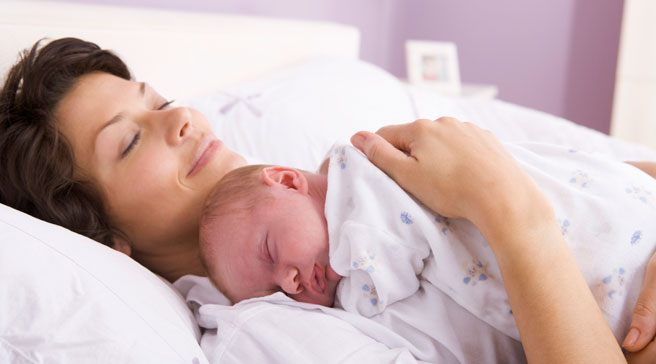Hugs make you grow
Why human contact makes us grow physically, as well as emotionally

Professor Schonberg is a serious man. Addressing his colleagues from the podium, his attention to detail lends authority to the announcement of what he considers a ground-breaking discovery from his multi-million-dollar lab: ‘Physical contact is a crucial element in a child’s growth.’
Sitting in the audience, my head is spinning. Here we are being told that five years and millions of dollars have been spent on research, just to ‘discover’ what every parent knows perfectly well, that babies need physical contact for healthy development.
Who or what set Schonberg and his team from Duke University in the US on this rather surprising trail? It turns out the instigator was a woman who listened to the promptings of her heart. Progress in neonatal care means we are now able to keep extremely premature babies alive. Air-tight incubators with ultraviolet lamps create the conditions necessary for their survival.
We have also learned, however, that during this critical phase the newborns’ fragile nervous systems cannot tolerate day-to-day handling by the medical staff. So we came to treat them without touching or holding them and ‘Do not touch’ notices are posted on the incubators. The babies’ cries may tear at the hearts of the most experienced nurses, but they dutifully ignore them.
Yet, despite the ideal temperature, the precisely regulated oxygen levels, the perfectly measured diet, these newborns don’t grow. Scientifically speaking, it’s a mystery. Given such perfect conditions, why would nature refuse to co-operate? Doctors and researchers drew comfort from the fact that, once out of the incubators, the babies — those that survive — quickly make up their weight. And then one day someone noticed that some of the babies still in the incubators appeared to be growing. Yet nothing had changed in their treatment programme. Well, almost nothing.
After due investigation, it turned out that the babies who were growing had been cared for by one particular night shift nurse, a newcomer to the unit, who hadn’t been able to ignore her tiny patients’ cries. So she’d started to stroke their backs to calm them. Since then, Schonberg and his team have confirmed these results with experiments on baby rats. They demonstrated that the body’s cells are unable to develop without any physical contact. The part of the genome responsible for growth enzymes stops production and the body goes into a form of hibernation.
However, it takes just a few caresses, and the rats’ enzyme production — and growth — kicks off. The conclusion, beyond any doubt, is that physical contact is a necessary factor for growth.
So what are the consequences of this ‘discovery’? Will we soon be seeing incubators fitted with electronic arms dispensing strokes at fixed intervals? I can see the headline already: ‘Mother’s love crucial element…’
Photograph: BananaStock









